- Home
- Robin Jones Gunn
Finding Father Christmas Page 2
Finding Father Christmas Read online
Page 2
Chapter Three
In the silence and safety of the Tea Cosy, the echo of my gloriously odd childhood bounced off the sooty hearth and returned to me.
All the memories began with my mother. She was an actress. Not an actor. Please. An actress. She introduced herself as ‘’Eve Carson, the actress,” and people responded with a hazy nod of vague familiarity. The truth was, none of them had ever heard of her.
Each summer Eve Carson, the actress, cavorted about the stage, embodying some immortal character or other at the Shakespearean theater in Ashland, Oregon. The rest of the year she packed our forest green Samsonite suitcases into the hatchback of our little blue car, and we traveled up and down the West Coast, calling on her string of theatrical connections.
In Santa Cruz, my mother went to work wearing a Renaissance costume that was sewn by a bald woman who had seven cats and no television. In San Diego, our hotel room was right next to the dinner theater where my mother sang and danced every night in a sailor suit. Performances were twice on Saturdays, and the food was plentiful, if I didn’t mind eating at midnight, which, of course, I didn’t.
I was a gypsy child. An only child. As such, I believed everything my mother said, including her embellished account of how, one moonlit night, she slept beside a lake on a feathery bed of moss.
“Silently, so silently, the Big Dipper tipped just enough to drop one small yet very twinkling star into the hollow of my belly. That tiny star sprouted and grew like a watermelon until… ”
Her deep, midnight blue eyes would widen as she declared that one day, without warning, I popped right out and peacefully went to sleep in her arms.
“And that day, my darling,” she would conclude in her winsome voice, as a plumpness rose in her high cheekbones, “was the happiest day of my life. You became to me the sun, the moon, the stars, and all my deepest dreams fulfilled. Never doubt the gifting of your being or the beauty of your light, my sweet Miranda.”
Like a baby bird, I swallowed every juicy word that tumbled from my beautiful mother’s mouth. We looked alike, with our dark hair, defined eyebrows, and slender legs. Her eyes were the deepest shade of blue before the color could be called black. My eyes, however, were the fairest shade of blue with the sort of transparency seen in a marble when held up to the sun. The lightness in my eyes and skin transferred to the feathery lightness of my logic, as well.
Until I was almost nine, I had no formed sense of reason. I was a child with delayed rational development. I didn’t understand the peril of such an existence with such a woman. I didn’t know a fine line existed between art and deceit. I couldn’t tell when she was performing and when she was telling the truth. All of it was real to me. Every word, every smile, every tear.
My strongest memories begin with the day we drove into Ashland. The hillsides of southern Oregon were paling from green to yellow, and the hot scent of the drying grass came through the car window like a faint sweetness riding over the sticky smell of the eternal 5 Freeway’s tar and asphalt.
We checked into our room at the Swan Motel on a Tuesday afternoon and ate pizza, sitting cross-legged on our bed. After that, we were living in the rhythm of her performance schedule. Every day seemed to be a Wednesday or a Thursday. It didn’t matter. My mother only came back to our room to sleep for a few hours during the darkest part of the night.
Most days I would go with her to the theater, where I would find new ways to make myself invisible. For a nine-year-old I was fairly successful at my career as a phantom. When I wasn’t so successful, the next day I always had a babysitter named Car-lita, who brought me cookies made with pink coconut.
A few times I stayed by myself in the motel with the door bolted and the television turned up as loud as it would go. I never told anyone that my mother left me alone.
The best mornings were the ones when I would wake to the sound of water running in the shower. That meant she wasn’t going to sleep for hours while I tried to stay quiet. On those mornings I would stay in bed, pretending to be asleep, and soon my mother would lean close with her long, black hair dripping tiny kisses on my face. She would say, “Awaken, my little bird! Let us fly away and dine on golden sunbeams.”
Those were the mornings we crossed the street holding hands and ate breakfast at the small cafe with the purple flowers by the front door. We always sat next to each other, nice and close, in the red vinyl booth. I always ordered waffles. Waffles with strawberries that came cold and mushy and tasting of freezer burn. Over the waffles and strawberries I would hold up the small jug of maple syrup and pour a spinning circle of liquid gold. The first touch of golden syrup on my tongue tasted like joy.
Eve Carson, the actress, always ordered scrambled eggs, with tomatoes instead of hash browns, and a small grapefruit juice. As the waitress walked away, I would watch my mother slip six or eight packets of sugar into her purse. She nabbed them in one smooth motion without taking her deeper-than-the-Pacific blue eyes off of me. One time she took a spoon. My mother was very good at the small things.
Whenever we were cozied up to each other like that, I didn’t feel neglected or jealous of the hours she spent doting on her other love, the theater. When I felt her close, I found it easy to believe that I was to her the sun and moon and stars. I believed everything she said.
Until the day I found the blue velvet purse with the golden tassels.
Chapter Four
Before I found the purse, I found the one-eyed dragon.
If I had believed in an ordered universe at that time, I would have understood why the one came before the other. But as I mentioned before, I was young in my logic and naive in all areas of theology.
The discoveries came close to each other while we lived in Ashland. On a beastly night during the second month of our stay at the Swan Motel, our air conditioner stopped working. It was too late to ask the front desk to call a repairman. And it was too hot to sleep.
My mother told me to lie still and imagine I was a snow-flake, floating on an iceberg in Alaska. I tried, but it didn’t work. My Method acting skills were sadly lacking.
“Then come with me, my little fish,” she said. “We shall go for a swim.”
“Now?”
“Yes, now.”
I followed my mother down the stairs, both of us in our thin, cotton pajamas. The motel pool was small and separated from the parking lot by a chain-link fence lined with sheets of hard green plastic. All the outside lights of the Swan Motel glowed with a pale weariness as if they were too hot to shine their brightest and had turned themselves to dim.
“It’s still hot out here,” I whispered.
“Yes, it is,” she murmured in the stillness. “Hot as dragons’ breath.”
My mother lifted the latch on the gate that led into the pool area. She walked right in as if the “Pool Closed After 9 PM” sign applied to everyone but us.
“They’ll be looking for a cool watering hole this night.” She dipped her foot into the shallow end. “When they come, you will allow the dragons to drink as much as they like, undisturbed, won’t you?”
I nodded.
“Your movements in the water must produce only the tiniest of ripples.”
I nodded again and lowered my thin legs into the water.
That’s when I saw him. The one-eyed dragon.
In the darkness of the still waters, the smoldering light under the diving board appeared to be the half-opened yellow eye of a camouflaged dragon gazing back at us.
A shiver raced up my torso.
Ignoring the dragon, my mother demurely slipped her slender frame all the way under the water, submerging with barely a sound. I watched as her oversized pajama top billowed around her like a jellyfish.
Bravely lowering myself into the water only up to my neck, I kept a watchful eye on the dragon in the deep end of the pool.
He did not move. Neither did I.
The gap between us remained a flat distance of undisturbed, watery space.
My mothe
r swam about freely, silently. I bobbed and blinked only when I had to. Then she motioned for me to follow as she slipped out of the pool.
We trotted as quickly as we could back to our room.
With a finger to her lips, she said, “We must hurry before one of them follows us into our room. Dragons are drawn in by the scent of chlorine.”
She silently slid the key into the door and jiggled it once, twice, three times.
“Hurry!” my tiny voice begged. The legs of my cotton pajamas clung to me as the dripping pool water puddled at our doorstep, leaving more traceable chlorine with every drop.
“Open!” my mother commanded the doorknob. Suddenly the key worked. We pressed through together as I stifled my squeals.
My mother quickly shut the door, locked it, bolted it with the chain, and motioned for me to cautiously peek out the front window behind the closed curtain. I squinted at the submerged yellow eye that hadn’t moved from the pool’s deep end. We stood together, barely breathing in the darkness, reeking of chlorine. My heart raced deliciously.
A few days later I was in our motel room alone, waiting for Carlita to arrive. I had planted myself in a chair beside the window and was watching a girl in a flowered bathing suit as she squealed and splashed in the pool.
I wasn’t on a vacation like she was. I lived there at the Swan Motel, and I knew all about the yellow-eyed dragon that came out on sweltering nights and breathed his fiery breath across the pool water. I wondered if I should tell her.
The blithe girl scrambled up on her father’s shoulders, plugged her nose, and did a clumsy free-fall dive into the deep end. She did it again. And again. She had no fear.
I wanted to do that. I wanted to gallop down to the pool and join them. I wanted to be the next one to dive off the shoulders of the laughing girl’s strong father into the pool. I wanted what she had.
Hurrying to put on my bathing suit, I returned to the chair by the window. As soon as Carlita arrived, I would convince her to take me down to the pool. I would finagle my way into the father-daughter diving contest somehow. Once I did, I would be the best diver of all. The girl’s father would cheer the loudest for me.
Then something inside me said no. That would never be so.
The man in the pool was her father. He was not my father. He would always cheer the loudest for her. No father would ever cheer the loudest for me.
That was the first time I realized what a gift a father was. And I hadn’t been given such a gift.
Carlita came puffing up the motel steps and bustled into the room, wheezing with apologies for her delay.
“I want a father,” I said.
Carlita chuckled. “Most girls your age want a pony.”
“Well, I don’t want a pony. I want a father.” I stood up and put my hands on my hips, imitating my mother’s extended chin gesture just so Carlita would know I wasn’t making a childish request.
“You have a father.” She set down her small bag of groceries.
“I do not.”
“Yes, you do. Everyone has a father. Every person who has ever been born has a father. A father and a mother. It takes the two for you to be born.”
I scowled at her. Carlita had no magic in her words the way my mother did.
In a more instructive tone she said, “This does not mean that every child gets to live with both her father and her mother. But you do have both. Everyone has both. You have a father, Miranda.”
“Then where is he?” My voice was still defiant but diminished.
“Your father is somewhere. I don’t know. Maybe he is dead. It does not matter. You have a mother who loves you and cares enough for you. You should be grateful. Now sit down. I have brought you some cookies.”
That night, when my mother slid into bed next to me, I pretended to be asleep. When she was making the soft, sighing sounds of sleep, I rolled over and whispered to her, “Do I have a father?”
“Hmmm?”
I had often heard her carry on conversations in her sleep. Sometimes the half sentences were lines from one of her performances. Other times she twisted her neck and yelled at people with a muffled fierceness I never heard in her waking hours. My plan was to make her respond to me while those mesmerizing eyes of hers were shut.
I wanted to know the truth, so I tried to sound like an adult. “Eve Carson, the actress, does your daughter, Miranda, have a father?”
What proceeded to roll off my mother’s naked lips was the familiar litany of the moonlight and the moss and me, the watermelon that popped out.
Her answer was acceptable to me. Under careful examination she hadn’t changed her story. Clearly, I didn’t have a father. Car-lita was wrong. She didn’t know everything the way my mother did, and I would tell Carlita that the next time she came.
But Carlita didn’t come the next time.
Instead, her teenage daughter, Angela, came. When Angela arrived, I had discovered a splinter in the palm of my hand, but all the pinching and biting I tried did nothing to bring it to the surface. Angela made me go look for a sewing kit so she could use the needle to remove the splinter.
“Your mother must have a little sewing kit somewhere,” she prodded. “Every mother does. Look in all the drawers.”
I dutifully scoured our sparse belongings and made a discovery. The bottom lining of my mother’s green Samsonite suitcase was loose. It could be removed. Under the flat panel I saw for the first time the blue velvet purse with the golden tassels.
“Is that a sewing kit?” Angela asked.
“I don’t know.”
“Well, open it!”
I lifted the top flap of the purse. The smooth fabric was folded over like an envelope. I carefully shook the contents onto the bed. The inventory included a folded-up playbill of a production of Shakespeare’s The Tempest with my mother’s name next to the character “Miranda.” Also inside was a certificate with a raised emblem in the corner and a wallet-sized photograph of a wailing young boy in an awful green sweater sitting on the lap of a bemused, wizard-looking Santa Claus.
Without a blink, Angela picked up the paper with the raised emblem. She took one look at it and repeated the same truth her mother had told me. The truth that my own mother had successfully kept hidden from me.
I did indeed have a father.
I had a birth certificate that came from a hospital, and even I knew that papers with raised seals on them had to tell the truth. The paper had a name written in on the line above the word “Father.” The name was Jay Ames. He was real, my father. And my mother had kept him from me.
That day I vowed I would never go to another play. It was the only way I could think of to get back at Eve Carson, the actress, for all her lies, all her grand performances, all her many worlds of make-believe.
I denounced fables and fairy tales. Every mythical creature she had ever introduced me to ceased to exist. The tooth fairy, the Easter bunny, and especially Santa Claus.
The only fable I still believed in was the yellow-eyed dragon that drank from our motel pool on scorching nights. I had seen him.
In place of my imaginary friends, I secretly began to believe in my father. I believed he must be somewhere on this earth, lying in wait, with one eye open, wondering about me the way I wondered about him.
Chapter Five
More tea?”
The question from Katharine reached into the depths where I had gone in my memories and carried me back up to the present and to England and to this place of comfort and serenity.
“I’ve brought some hot water.” Katharine placed a white ceramic teapot on the table. “I can bring fresh tea, if you like. If you wish only to warm up the pot you have, you can add the hot water. The tea leaves might have made the tea too strong by now.”
“Okay. Thank you.”
She didn’t step away.
“The scones are very good, by the way.”
“Would you like another?”
“No. I will take the bill, though. How much do I o
we you?”
“Nothing.” She waved her hand. “Let this be my small Christmas gift to you.”
“No, really, I would like to pay.” I reached for my wallet.
“Not this time,” she said with a calm firmness. “This time I would like to give to you. Next time you can give to me.”
It seemed strange that her hospitality-clad services alluded to a “next time.” I thought I had made it clear that I was passing through and had no plans to stay or to return.
“Have you decided then about the performance this evening?”
I paused. All my self-preservation instincts told me to be on my way. Ignore the possibility that someone else in town might be able to identify the man and the boy in the photograph. I didn’t need to know. The mystery of my father’s identity could die with me the way it had died with my mother eighteen years ago. If my mother were here today, she would be thrilled to go to the performance. I was not.
“Would your mother like to come, then?” Katharine asked.
I looked at her hard. Had I said something aloud about my mother? I thought my reminiscences had been only in my mind.
Several friends and roommates had told me over the years that I talked in my sleep as well as in my waking. They told me when I was deep in thought I would carry out the process half in silence and half in mutterings. I must have mentioned my mother, thus prompting Katharine’s question about her.
“My mother passed away quite some time ago.”
Surprisingly, I felt secure enough to add my simple, well-rehearsed paragraph. It was a disclosure that evoked sympathy while at the same time closing the door on the topic.
“She fell from a scaffold at an outdoor theater in Salinas when I was eleven. It was a dress rehearsal for The Merchant of Venice. She died from internal injuries two days later. However, the show did go on.”

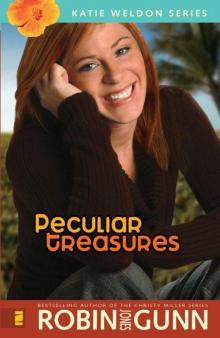 Peculiar Treasures
Peculiar Treasures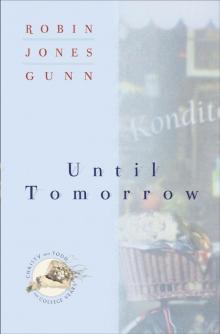 Until Tomorrow
Until Tomorrow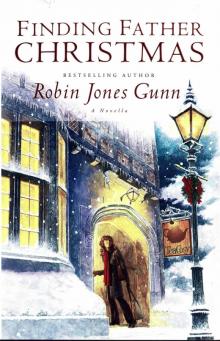 Finding Father Christmas
Finding Father Christmas Sisterchicks Down Under
Sisterchicks Down Under Christy Miller Collection, Vol 2
Christy Miller Collection, Vol 2 Sisterchicks Go Brit!
Sisterchicks Go Brit! Sierra Jensen Collection, Vol 1
Sierra Jensen Collection, Vol 1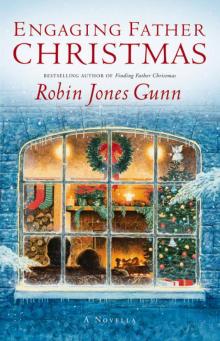 Engaging Father Christmas: A Novella
Engaging Father Christmas: A Novella Finally and Forever
Finally and Forever Wildflowers
Wildflowers Clouds
Clouds Sierra Jensen Collection, Vol 3 Sierra Jensen Collection, Vol 3
Sierra Jensen Collection, Vol 3 Sierra Jensen Collection, Vol 3 Christy Miller Collection, Vol 1
Christy Miller Collection, Vol 1 Sisterchicks Do the Hula
Sisterchicks Do the Hula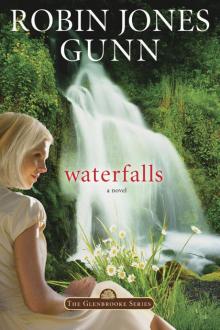 Waterfalls
Waterfalls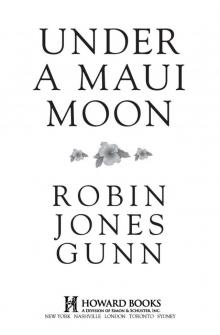 Under a Maui Moon
Under a Maui Moon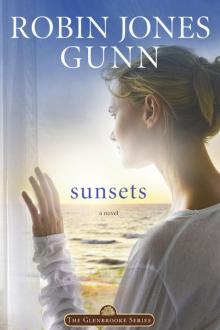 Sunsets
Sunsets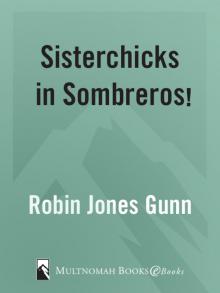 Sisterchicks in Sombreros
Sisterchicks in Sombreros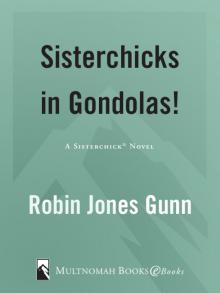 Sisterchicks in Gondolas!
Sisterchicks in Gondolas!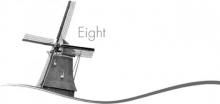 Sisterchicks in Wooden Shoes!
Sisterchicks in Wooden Shoes! Christy Miller's Diary
Christy Miller's Diary Woodlands
Woodlands Only You, Sierra
Only You, Sierra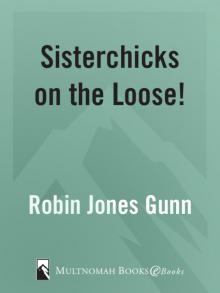 Sisterchicks on the Loose
Sisterchicks on the Loose Sierra Jensen Collection, Vol 2
Sierra Jensen Collection, Vol 2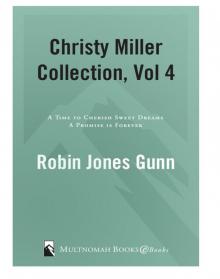 Christy Miller Collection, Vol 4
Christy Miller Collection, Vol 4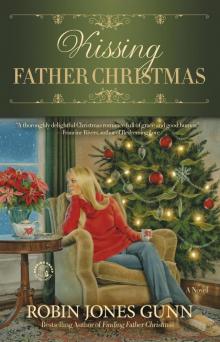 Kissing Father Christmas
Kissing Father Christmas Sierra Jensen Collection, Vol 4 Sierra Jensen Collection, Vol 4
Sierra Jensen Collection, Vol 4 Sierra Jensen Collection, Vol 4 Canary Island Song
Canary Island Song Secrets
Secrets Cottage by the Sea
Cottage by the Sea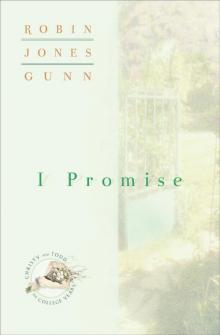 I Promise
I Promise Love Finds You in Sunset Beach, Hawaii
Love Finds You in Sunset Beach, Hawaii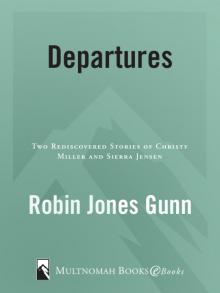 Departures: Two Rediscovered Stories of Christy Miller and Sierra Jensen
Departures: Two Rediscovered Stories of Christy Miller and Sierra Jensen Coming Attractions
Coming Attractions Sierra Jensen Collection, Volume 3
Sierra Jensen Collection, Volume 3 Sierra Jensen Collection, Volume 4
Sierra Jensen Collection, Volume 4 Christy Miller Collection, Volume 2
Christy Miller Collection, Volume 2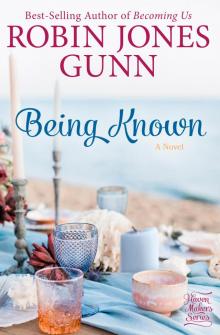 Being Known
Being Known Christy Miller Collection, Volume 1
Christy Miller Collection, Volume 1 Sierra Jensen Collection, Volume 1
Sierra Jensen Collection, Volume 1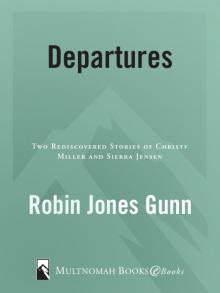 Departures
Departures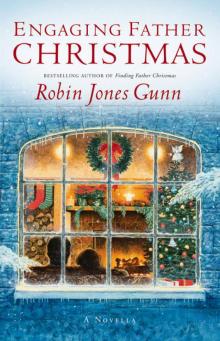 Engaging Father Christmas
Engaging Father Christmas Only You, Sierra: Book 1 in the Sierra Jensen Series (eBook)
Only You, Sierra: Book 1 in the Sierra Jensen Series (eBook)